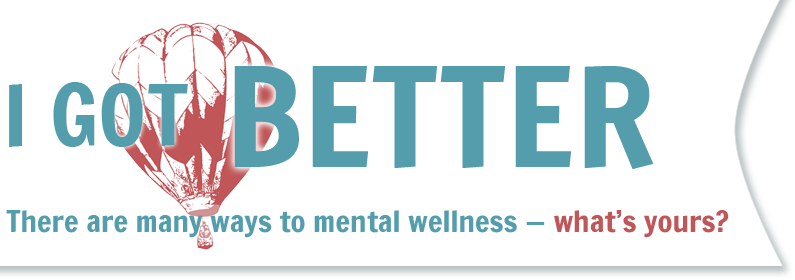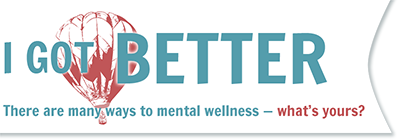Normalcy or Health is the Ability to Work and Love
By Johanna

Medication can be helpful but watch out for the harmful effects.
Mainly short – term, in crisis situations. Benzodiazepines, if I can stay away from too frequent use, have helped in a crisis and helped me break a cycle of distress based on no sleep. MAOI antidepressants, in particular Parnate, have provided me a genuine “Get Out of Hell Card” at two points in my life. Unfortunately, after taking’em for a year, they stop working completely.
Most antidepressants: declining usefulness (or none to begin with) and escalating side effects. Emotional flatness, feeling cut off from other people, being content with a more and more circumscribed and impoverished life. Bad withdrawal syndromes, which in the case of Effexor would start about two hours after you missed your Daily Dose. Talk about being dependent! Worst of all, the very real possibility that the drugs have made my depression worse and more chronic in the long term — “tardive dysphoria” as some people call it. As for antipsychotics, I have only had them a few times, and thank god. Felt like I was in suspended animation.
There’s a tonic in not feeling like a patient.
It seemed that after failing on seventeen drugs there was always an eighteenth, and why on earth should that give me hope? Or if three drugs didn’t do it, maybe five could. Please! As for counselors, I have had some pretty good ones and some real duds — but the dynamics of the experience seem to set me up as a powerless and dysfunctional person in my own mind — even if such is not the attitude of the counselor. Every time I have ended psychotherapy it has made me feel at least temporarily more confident, more optimistic. There is a tonic in the feeling of NOT being a patient.
Little by little life crept back
There have been a few turning points. A psychiatrist I saw during the 1980’s had a lot of confidence in me as a person of intelligence who could accomplish things. He was thrilled when I went to college, and wrote a letter of recommendation. The most important was when I decided to stop drinking. I did not believe that I could live without booze, and I might not have tried it if I had not been convinced that I was going to die anyway. Try this for a month or so, I told myself, and if it doesn’t work there will still be time to shoot your-self. It’s ironic: I believed I needed it every day, for the rest of my life like diabetics need insulin. Sound familiar? Lo and behold, I put the bottle down, and I did not die. For about a month I felt awful; then little by little life started creeping back in. I finally found an AA group full of folks who were strange enough that I felt completely at home, and they helped me learn how to relate to other human beings again. I would not call myself “BETTER” absolutely — it has been an up and down ride — but it has been my second chance at life.
Recovery is when the problem doesn’t dominate my life.
I don’t believe in total recovery. For me at least, the drive for Full Remission of All Symptoms, whether through drugs or any other method, is unnecessary and likely to lead to dangerous excesses. To me, recovery is when the problem doesn’t dominate my life; when I can get things done; when I can have real human relationships. Sigmund Freud, that old shit, actually said one very worthwhile thing: that normalcy or health was the ability to work and to love. I will settle for that any day.
Insist on being treated with respect
You are so much more than your problems or your symptoms. Even if you have done many irrational things, you are not an Irrational Person. Even if you are currently helpless and dependent on others, economically or otherwise, you are not a child. If anyone persists in treating you as a child, that is their problem not yours. It is not your fault that you got into this bad place, but it will be largely up to you to get out — with a little help from your friends. Do not listen to anyone who tells you what you will do or be “for the rest of your life.” That especially applies to taking drugs. Insist on being listened to and treated with respect. If your “professional helpers” do not do this, don’t yell at them — just get out of there, as quickly and efficiently as you can. And then keep looking for the respect you deserve.


